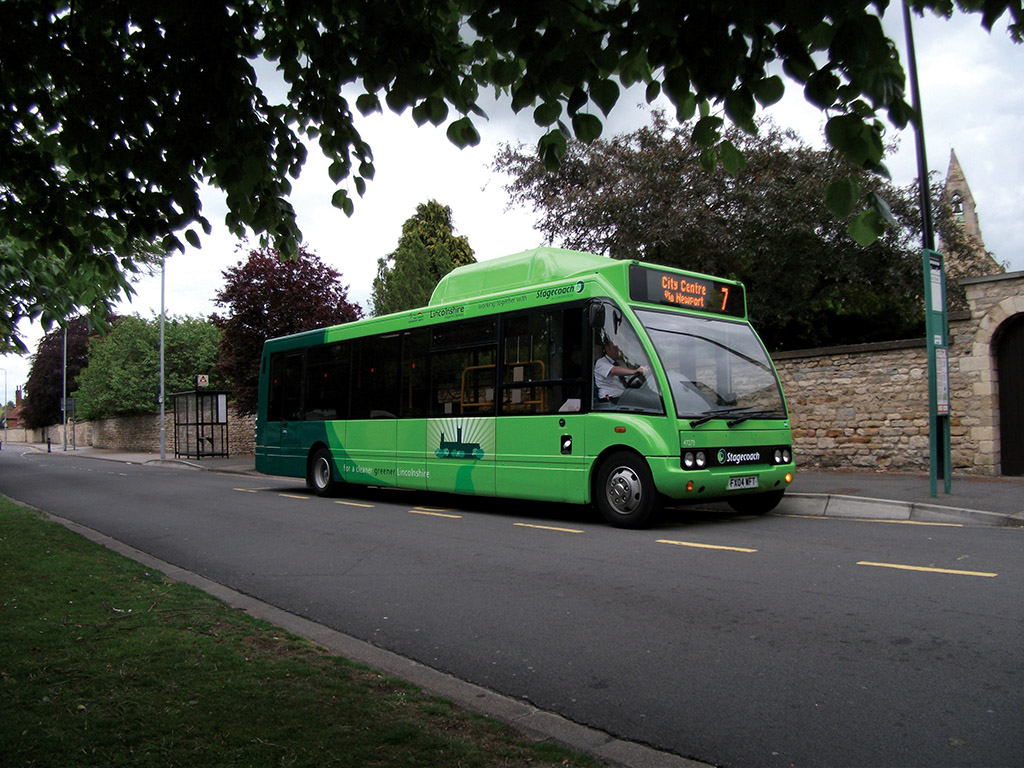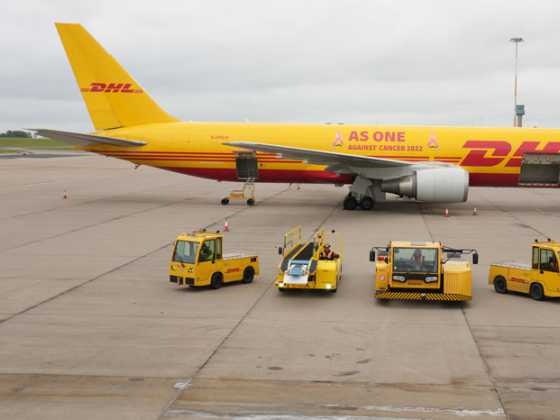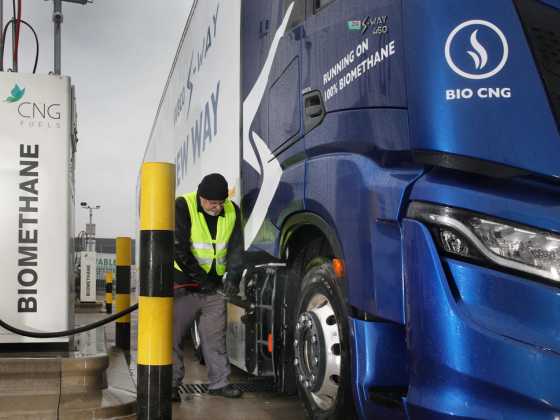Greening the UK’s trucks, buses and large vans

With emissions from HGVs having risen over the past five years, significant improvements in air quality can be achieved by focusing on LGVs, buses, and HGVs. But with electrification not an option for such large vehicles, what other greener fuels can be sourced? Charlotte Morton finds out
Air pollution is one of the largest risks to public health in the UK, with studies showing that it is the cause of over 40,000 premature deaths per year and that the most deprived areas bear a disproportionate share of poor air quality. A key contributor to air pollution, as well as to 20 per cent of the UK’s carbon emissions, is transport.
Over half of roadside emissions are from buses, taxis, light goods vehicles (LGVs), and heavy goods vehicles (HGVs), all of which have high levels of nitrogen-oxide (NOx) emissions. With emissions from HGVs in particular having risen over the past five years, significant improvements in air quality can be achieved by focusing on LGVs, buses, and HGVs.
While electrification may offer a suitable low-carbon alternative to petrol and diesel passenger cars, it is not a panacea across all vehicle sizes. The Committee on Climate Change has recognised that “large, long‑distance HGVs are not suitable for conventional electrification as they would require an excessively large battery for long-distance movement of goods”, and the same is true of other large vehicles.
The role of biomethane
Biomethane is a low-carbon, methane‑based transport fuel produced by anaerobic digestion (AD), a natural process that breaks down organic wastes and purpose‑grown crops to create a biogas that can then be upgraded to biomethane.
With more than 80 AD plants across the UK already producing biomethane, the UK AD industry has sufficient capacity today to produce enough biomethane to power 80 per cent of the UK’s entire bus fleet and the potential to produce enough biomethane to power 75 per cent of all HGVs in the UK. It can also be used directly on farms to fuel agricultural vehicles.
Given how far hydrogen is from being a reliable option for transport, over the short to mid term, biomethane is a technology-ready, cost-effective means of slashing emissions and particulate matter and improving air quality, and is the only practical means of decarbonising HGVs, buses, and other large vehicles.
Why biomethane?
Use of biomethane as a vehicle fuel provides numerous benefits compared to other fuels. Increased uptake of biomethane‑fuelled vehicles would result in improved air quality from dramatically reduced NOx emissions, particulate-matter-free combustion, and fewer ozone promoters, aldehydes and non‑methane hydrocarbons.
While Euro VI diesel vehicles may now achieve similar air-quality improvements to gas options, the well-to-tank emissions values from use of biomethane as a transport fuel offer significant carbon savings, whether feedstocks of waste, residue, or crop are used.
A recent study by NGVA Europe confirmed that natural gas reduces greenhouse gas emissions from heavy-duty vehicles by 16 per cent for compressed natural gas and 15 per cent for liquefied natural gas; it also stated that “the use of natural gas represents one of the most effective solutions to fight climate change and improve air quality in a cost-efficient way”.
Continued uptake of biomethane will therefore help the UK achieve its Carbon Budgets and decarbonisation targets under the 2008 Climate Change Act, with the potential to deliver £2.1 billion in CO2e savings per year (assuming a carbon price of £100/tCO2e). These air-quality and emissions benefits have been achieved through constant progress in biomethane engine technology and gas‑vehicle development, and have been verified in laboratory tests and real driving conditions by portable emissions measurement systems.
Biomethane-fuelled vehicles are quieter than their diesel equivalents, allowing for night-time deliveries that help to reduce congestion. As pointed out by Low Emissions Strategies’ Andrew Whittles, biomethane is also a more robust and simpler technology for reducing emissions and improving air quality than other options, as biomethane vehicles are relatively easy to maintain.
Who’s already using biomethane?
Lots of bus companies across the UK are increasingly looking at gas buses to improve local air quality, reduce their carbon emissions, and save money, with uptake having been stimulated by government policies such as the Bus Service Operators Grant and the Green Bus Fund.
Earlier this year, for example, Nottingham City Transport (NCT) unveiled a new £17m double-deck ‘Bio-Gas’ bus fleet, the largest of its kind in the world. NCT now has 30 biomethane vehicles in service with a further 23 on order, with NCT Engineering Director Gary Mason saying that “Customer and driver reaction has been excellent and the quieter, cleaner and smoother running engines have been a great success”.
According to John Bickerton of Reading Buses, who now have the largest gas‑powered bus fleet in the UK, a fifth of their operation is close to carbon neutral, while Merseytravel in Liverpool, Stagecoach in Sunderland, and Arriva in Darlington have also adopted biomethane bus fleets. As Andrew Whittles suggests, with a further £100m recently announced by the government as part of its air-quality plans to improve bus emissions, this is an upward trend that is only going to increase.
In terms of HGVs, six major UK fleet operators are currently trialling 81 gas‑fuelled HGVs in what has been described as the UK’s largest biomethane fuel trial to date. Justin Laney, general manager for central transport for the John Lewis Partnership (JLP), who use biomethane for a number of their truck fleets, has said that JLP can run five gas lorries for the same emissions as one diesel truck. Along with significant cost savings, Justin says this offers a compelling business case to switch more of their trucks from diesel to biomethane in the future.
What is needed to further stimulate uptake?
At time of writing we are awaiting the Department for Transport’s (DfT’s) response to its consultation on the Renewable Transport Fuel Obligation (RTFO), which regulates biofuels used for transport and non-road mobile machinery.
We support DfT’s proposals under the RTFO to double the percentage of renewable fuels that fuel suppliers are obliged to source from 4.75 per cent to 9.75 per cent. This would provide important support for low‑carbon fuels such as biomethane and, with the percentage being held at this level until 2030, provide vital stability for the industry.
We are also keen to see the introduction of a sub-target for ‘development fuels’, one of which should be biomethane, which would rise to two per cent by 2030. The government therefore needs to proceed with its proposed reforms to the RTFO but also ensure that the scheme provides long-term certainty. The fuel suppliers’ obligation, for example, needs to continue beyond 2030, and there is a need for stability in the value of the Renewable Transport Fuel Certificates, a key trading tool for producers of biomethane.
Looking to the future
It’s vital that biomethane as a vehicle fuel is recognised by DfT and the government as the key means of improving air quality in large vehicles in a cost-effective manner.
It’s also critical that there is support from central government for the generation of biogas and its upgrading to biomethane – without this, the AD industry will be unable to generate biomethane for transport and the many benefits of biomethane mentioned above will not be realised. Wider support for AD would not only increase uptake in biomethane as a vehicle fuel but also provide a host of other benefits such as production of renewable energy and biofertiliser, increased food and energy security, and decreased greenhouse gas emissions from wastes.
The role of biomethane in fuelling buses and heavy-duty vehicles to support the government’s Clean Air Strategy will be the key theme of the third ADBA Biomethane & Gas Vehicle Conference, taking place on the 28 September 2017 at the Queen’s Hotel, Leeds. We hope you can join us there to find out how biomethane can help to make your fleet cheaper and greener.






